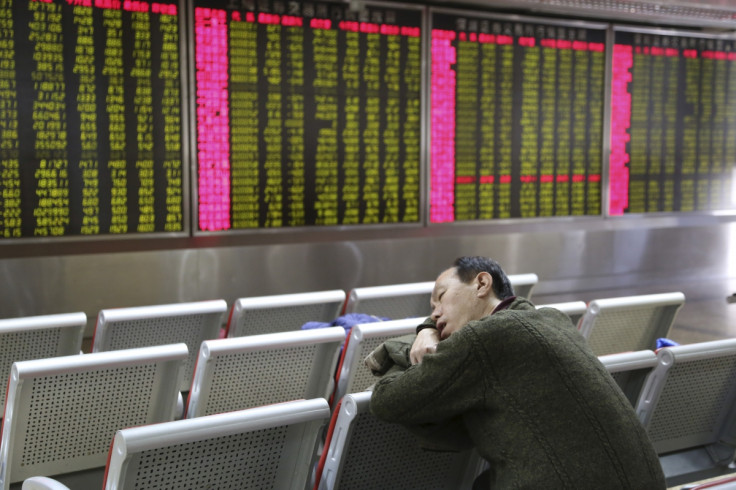Barring Korea, Asian markets in the red despite injection of liquidity by China's central bank

Excluding Korea's benchmark index KOSPI, Asian stock markets were in the red for the day. This was despite People's Bank of China (PBoC) injecting huge amount of funds into the domestic markets to keep borrowing costs down.
PBoC's devaluation of the yuan yesterday (4 January) hurt investor sentiment. It was one of the reasons that led to the sell-off in the Chinese markets. Today (5 January), the central bank revalued its yuan currency at a much firmer rate than many had expected.
Irrespective of these moves by Beijing, which were directed to stabilise it stock markets, both the Shanghai Composite Index and Hang Seng declined. While the former was trading lower by 1.51% at 3,246.43, the Hang Seng was down 0.7% at 21,178.06.
India's CNX Nifty was marginally lower at 7,780.40, down 0.14%, while Japan's Nikkei 225 was at 18,374, down 0.42%. Australia's S&P/ASX 200 closed lower for the day at 5,184.40, down 1.63%.
South Korea's KOSPI bucked the bearish trend and was trading higher by 0.61% at 1,930.53. A South Korean finance ministry official stated on 5 January that the government was willing to take action if needed to stabilise its stock market.
Analysts at Citi said: "The price action reminds investors that the world is more connected than ever; volatility is likely here to stay, and liquidity may suffer if investor uncertainty worsens. Global growth and geopolitical stability remain the main sources of concern."
Among commodities, oil prices, which have been on the decline because of supply exceeding demand, were up in Asian trading hours. While WTI Crude oil was trading at $36.84 a barrel, up 0.22%, Brent Crude was trading higher by 0.13% at $37.27 a barrel.
However, BP CEO Bob Dudley recently stated that global oil prices could hit a new bottom in early 2016. He also opined that oil prices would continue to remain low for the next couple of years.
© Copyright IBTimes 2025. All rights reserved.


















